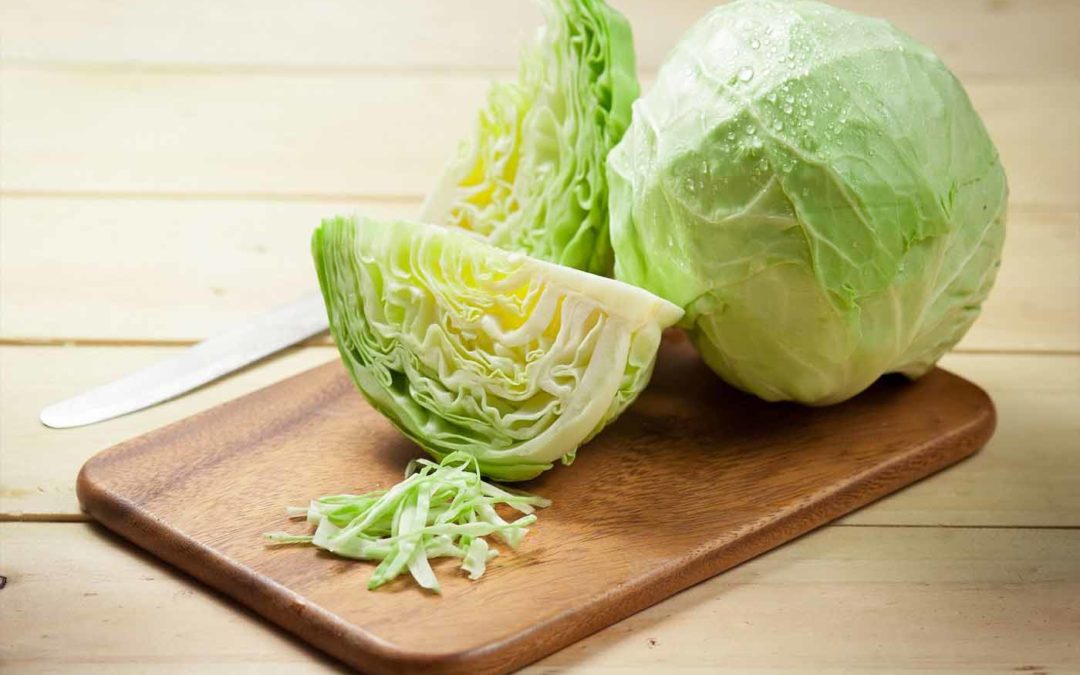Cabbage benefits for skin – Cabbage is one of the most popular green leaf foods belonging to the all-time popular cruciferous vegetable family. This vegetable is densely packed with nutrients. However, people often overlook the importance of cabbage. People often take it as an element of health for salads and probably some minute preparations but the food has more benefits than we have assumed.
Available in a variety of colors, the leaves of cabbage are either smooth or shriveled. Various studies have been done on its ability to increase our health and fight inflammation, leading to good skin. Yes, cabbage benefits for skin can prove to be highly beneficial for our skin.
Why cabbage is so good?
Cabbage generally contains four major antioxidants called choline, beta-carotene, quercetin, and lutein. Among these four, choline improves our memory and fights inflammations. It also prevents the neural tube defects that are seen in pregnant women, as shown in various studies. Beta-carotene protects our DNA from various smoking effects. Lutein can prevent several macular degenerations caused by aging. Quercetin helps fight harmful bacteria while combatting several common diseases.

Cabbage is also rich in mineral and vitamin content. It consists of Vitamin K, C, and B in abundance. These nutrients offer plenty of benefits for our health and skin.
Variety of cabbage
No matter how many variations they come in, cabbage is fruitful in all forms. Some of the most common types of cabbage include
- Organic cabbage
- Cannonball cabbage (the most commonly seen green cabbage)
- Savoy cabbage
- Red cabbage
- Napa cabbage
- Bok Choy
- Choy Sum
Regardless of the type of variety, you plan on consuming, cabbage benefits for skin. Cabbage is also among the most popular item researched by scientists for its benefits.
How does it help benefit your skin?
As we can already notice, cabbage is rich in antioxidants such as anthocyanins and sulforaphane. These together help fight inflammation. And when they reduce inflammations, our skin tends to become more smooth and radiant. This also helps fight acne, blemishes, and pigmentations. Cabbage can even fight certain types of cancer. When used in its fermented form, cabbage can help boost the health of our digestive system as well.
Cabbage helps fight chronic inflammation. In a study, women who took cabbage and other cruciferous vegetables in higher amounts displayed lower inflammation levels. This is due to the antioxidant sulforaphane present in the vegetables as shown in the study.
Cabbage helps our skin through vitamin C
Another compound that helps make our skin glow is vitamin C. Luckily; cabbage is rich in Vitamin C. The essential nutrient boosts the production of collagen which is a structural protein that helps in the formation of skin as well as wound healing. Red cabbage is also helpful in preventing skin cancer. Vitamin C acts as an antioxidant too. Commonly known as ascorbic acid, it helps in collagen synthesis which provides healthy skin.

Both dietary and topical forms of cabbage have beneficial effects on skin cells. Studies also show how vitamin C helps prevent harm done to our skin by ultraviolet rays, which is an entire phenomenon called as photodamage.
Vitamin C in our body
Vitamin C is present in our body as a normal constituent of our skin layer. It is found in high levels in both dermis and epidermis. The content of Vitamin C of the epidermis is usually much more than that of the dermis. However, the vitamin C concentrations in both the layers of the skin are equal to other water-soluble antioxidants. This includes uric acid and glutathione as well.

It is a fact that as we age older, the content of vitamin C in our skin layer (both dermis and epidermis) decreases gradually. This decrease might also result from exposure to UV light of pollutants like smoke or ozone.
One might wonder where natural vitamin C comes from our skin layer. It is transported by our main bloodstream. The stream transport proteins that are specific for ascorbic acid. These proteins are found on cells in all layers of the skin. Hence, there is a very deep connection of vitamin C with our skin and ultimately that of cabbage with our skin too. Usually, elements called keratinocytes have high Vitamin C capacity and they transport this vitamin in our skin. Taking vitamin C rich vegetables like cabbage increase the vitamin C levels in our skin and hence help improve our skin quality.
Topical cabbage application for skin
Cabbage can be applied topically to the skin as a home remedy. This remedy is good and comes with less to no side effects. The primary obstacle the vegetable has to face is the stratum corneum layer of the skin that might cause obstruction to vitamin C absorption. One can overcome this by either heating the cabbage leaves before applying or with professional methods such as chemical peels to enhance absorption.
There are various studies being done regarding the topical absorption of vitamin C into our skin. Many studies have found out that percutaneous vitamin C absorption depends on the pH of our skin. In the study mentioned here, the pH below 4.0 aided in good transportation of Vitamin C. It encouraged the uncharged form of vitamin C to get absorbed quickly.
This happened as the paste of warm cabbage leaves penetrated the epidermis to reach the underlying dermal layers.
Though it might look assuring, the stability of topical use of cabbage leaves for skin improvement is a concern. This is because the exposure to air, heat or light may degrade vitamin C. However since cabbage is a natural form of Vitamin C, it can be effective in most cases.
Cabbage helps in photoprotection
Cabbage helps our skin by limiting the damage caused by UV rays and other light exposures. Here, cabbage might not work as a sunscreen as it does not absorb light in the UVB or UVA spectrum. Instead, it works by providing the antioxidant activity that helps protect our skin from UV-induced damage which is often caused by free radicals. Cabbage intake is adequate for the protection of skin from harmful light, termed as photoprotection.
It is important to note here that when we are exposed to UV rays, the vitamin C content decreases and the effect is dependent on the duration of UV exposure. The addition of vitamin C from cabbage reduces UV-related DNA damage and lipid peroxidation. When you take cabbage, the release of pro-inflammatory cytokines is also limited. Cabbage also protects our skin against apoptosis which is a process of death of the cells. Moreover, it also increases cell survival rate following UV exposure.
Cabbage can help prevent wrinkles
Wrinkles occur as there is oxidative damage to proteins underlying our skin layers. This is a distinguishing feature of aging as well, which in common language, is termed as wrinkles. The oxidative damage can lead to a change in skin structure as well. By providing antioxidant functions, cabbage can regulate the synthesis of a structural protein named collagen. When collagen is produced in sufficient quantity, it helps stabilize and support epidermis, the outer layer of our skin.
Cabbage helps in healing

When you are suffering from skin disease such as scurvy, your body loses the ability of fast wound healing. This can be countered by cabbage as it can compensate for the levels of decreased vitamin C on a wound or any other part that needs healing. Also, cabbage shows an anti-inflammatory response which helps in wound healing in an assuring way. This is the reason that many skin procedures are often subjected to quick healing when you consume more of cabbage.
Cabbage may help moisturize our skin
When you consume cabbage in regular dietary intakes, you tend to have a decreased risk of dry skin. This happens as ascorbic acid may have effects on the trans-epidermal water loss. This helps retain the water in an effective manner. The addition of vitamin C rich contents in our diet such as cabbage promotes the barrier lipids synthesis. This establishes the stratum layer of the skin to have low water permeability. In other words, it makes our skin prone to water permeability. Cabbage helps our skin retain water in a better way.
Conclusion
Cabbage is by no means harmful food for our skin and health. In fact, it does miracles when you consume it continuously. Nowadays, when environmental pollution is on the rise, there are various problems occurring to our outer skin layer. Also, pollutants such as ozone can decrease vitamin C contents in our skin, leading to free radical damage which is responsible to keep our skin glowing. Habits like smoking also increased wrinkling while further decreasing collagen synthesis. Smoking decreases plasma vitamin C levels and causes our skin to become dull.
To counter these problems, lifestyle changes are required. And if you include healthy food such as cabbage in your diet routine, you might see wonders you didn’t expect. Now is the time to turn our footsteps towards the natural methods of skin rejuvenation as these come with long-lasting effects.
Moreover, cabbage is a beneficial product as a topical remedy to fight against various types of inflammations. It also helps reduce acne and inflammatory lesions. Cabbage leaves can also be applied in the form of a facial pack to get a soothing effect. The facial pack of cabbage leaves also helps our skin stay hydrated. It also increases the radiant glow and maintains the elasticity of our skin. You can also use cabbage for pain relief in case of joint pain and also cabbage on swollen feet.
Various studies are still going on as experiments continue to dig deeper and find more promising benefits of using cabbage for our skin. In a recent evaluation, it is scientists saw that cabbage can even have certain mild skin lightening effects as it may reduce melanin production and melanin oxidation in our skin layer.



